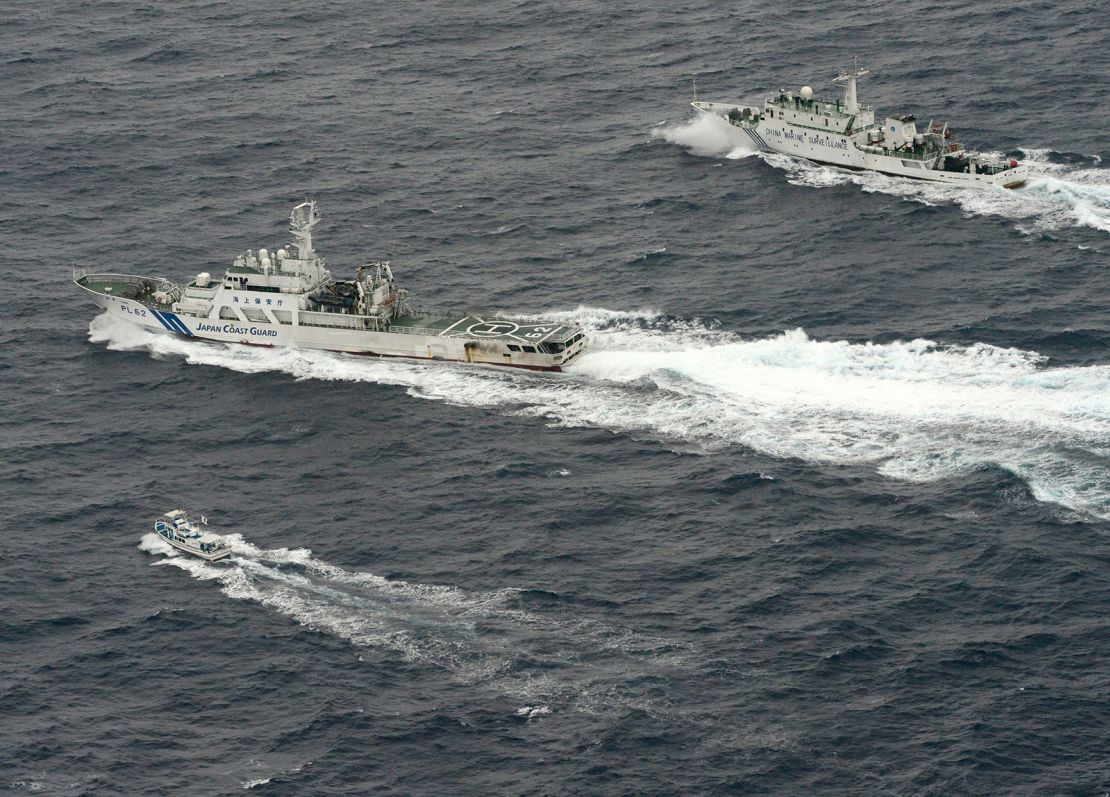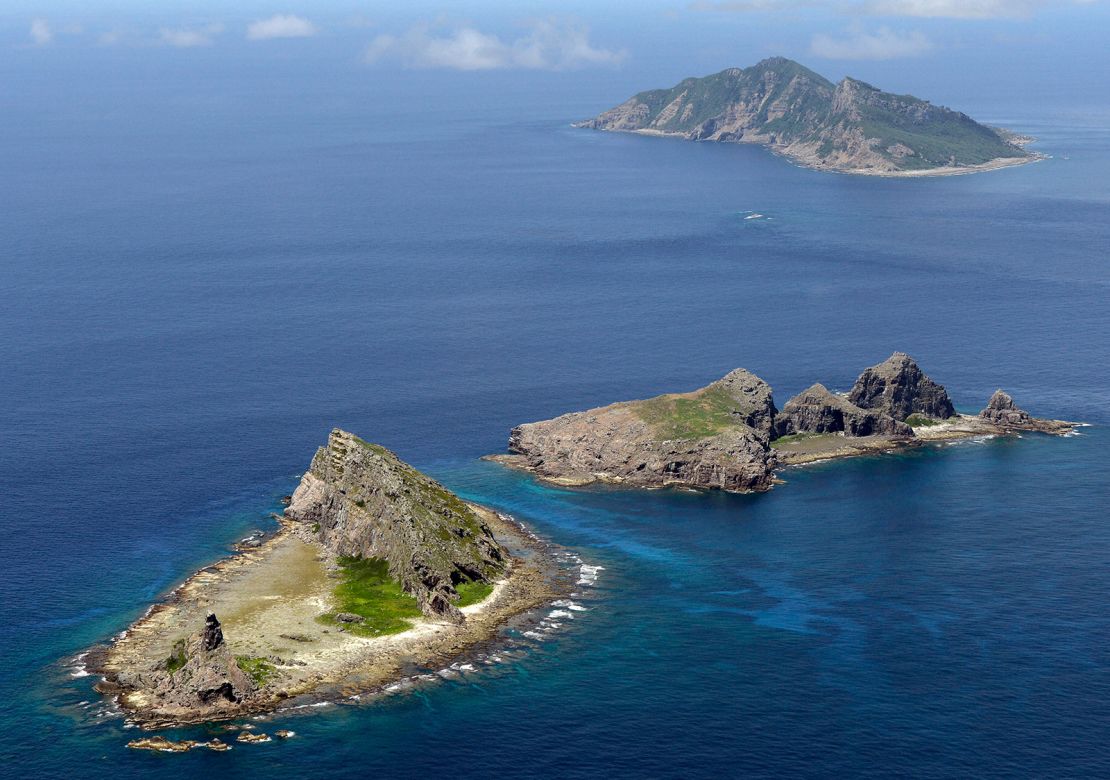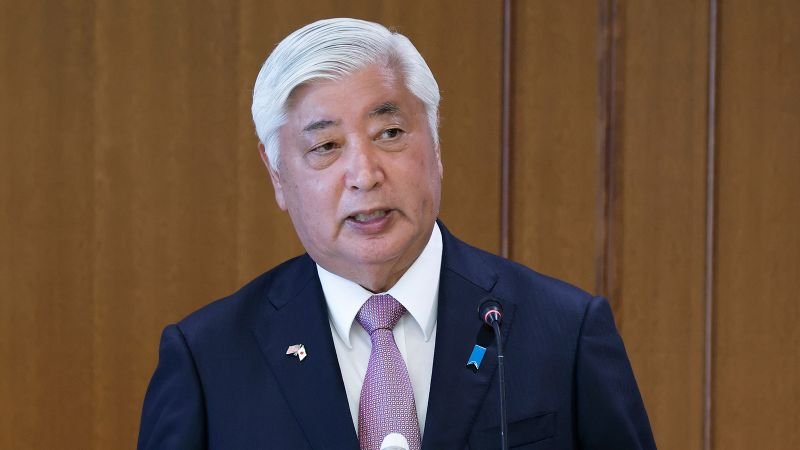Seoul, South Korea
CNN
—
Japan is facing its most severe security environment since World War II as three potential adversaries in East Asia – China, Russia and North Korea – ramp up military activities in the region, the country’s defense minister said Tuesday.
“The existing order of world peace is being seriously challenged, and Japan finds itself in the most severe and complex security environment of the post-war era,” Defense Minister Gen Nakatani said in an introduction to the ministry’s annual defense white paper.
China’s military activities present “an unprecedented and the greatest strategic challenge” to Japan, the report said.
Beijing is “rapidly enhancing its military capability in a qualitative and quantitative manner” while “intensifying” activities around the region, Nakatani said, specifically mentioning the Senkaku Islands, a chain in the East China Sea that Tokyo controls but which is also claimed by Beijing, which calls them the Diaoyus.

The 34-page document gives a dire outlook on the future of the region, especially on the rivalry between China and the United States, Tokyo’s most important ally.
“The global balance of power is shifting dramatically and competition among states continues. In particular, the inter-state competition between the United States and China is likely to intensify even further in future,” the white paper says.
The paper says escalating Chinese military activity around the democratically controlled island of Taiwan poses a threat.
“China seeks to create a fait accompli where the People’s Liberation Army (PLA) is operating, and improve its actual combat capabilities,” it says.
It cites a similar situation in the South China Sea and says PLA actions there are a legitimate Japanese concern because Tokyo has major sea lanes running through the waterway.
Jiang Bin, a spokesperson for China’s Defense Ministry, said Wednesday that Japan was “hyping up the ‘China threat,’ and grossly interfering in China’s internal affairs.”
“The Japanese side is fabricating false narratives to find excuses for loosening its military constraints,” Jiang said, referring to Japan’s strict post-war constitution, which limits its military forces to self-defense only.
And Japan’s invocation of World War II is controversial in a region where fissures over Tokyo’s devastating militarism during the period sour relations with many of its neighbors to this day.
“We urge the Japanese side to deeply learn from history, cease slandering and accusing China,” Jiang said.
But the Japanese paper didn’t only focus on Beijing’s unilateral actions.

Russia and North Korea
As part of its expanded activities, the PLA is increasing cooperation with Russian armed forces, including joint bomber flights and naval patrols near Japan, the paper says.
“These repeated joint activities are clearly intended for demonstration of force against Japan,” it says.
The report says that in the past fiscal year Japanese fighter jets scrambled 704 times, including 464 times in response to approaching Chinese aircraft and 237 times for Russian aircraft, a rate of almost two scrambles a day.
Russia’s three-and-a-half-year-old invasion of Ukraine, along with the buildup in the Russian military that has come with it, is a worry for Japan, especially because of its status as a key US ally, the report says.
“The security of Europe and the Indo-Pacific is inseparable,” it says, and warns that a Ukraine-like war is possible in the region – without specifically mentioning where that might occur.
The report says some of Russia’s newest military hardware has been deployed to the Pacific.
Moscow has added troops, missiles and warplanes to islands north of Japan, which the Soviet Union took toward the end of World War II, but which Japan says are sovereign Japanese territory illegally occupied now by Russia.
North Korea, meanwhile, is further developing nuclear weapons and the ballistic missiles to deliver them, the report says.
Pyongyang’s ballistic missiles, believed to be capable of carrying nuclear warheads, can cover the entirety of the Japanese archipelago, it says.
“North Korea’s military activities are posing an even more grave and imminent threat to Japan’s security than ever before,” the paper says.
The Japanese paper echoed many of the concerns the head of the US military’s Indo-Pacific Command, Adm. Samuel Paparo, voiced in a posture paper in April.
“China continues to pursue unprecedented military modernization and increasingly aggressive behavior that threatens the U.S. homeland, our allies, and our partners,” Paparo said.
The US commander also said the deepening cooperation between China and Russia as well as North Korea presents an increasing threat in the Pacific.
“Together, these countries’ growing ties create a complex, interconnected challenge to U.S. national security and regional stability,” Paparo said.
CNN’s Joyce Jiang contributed to this report.

